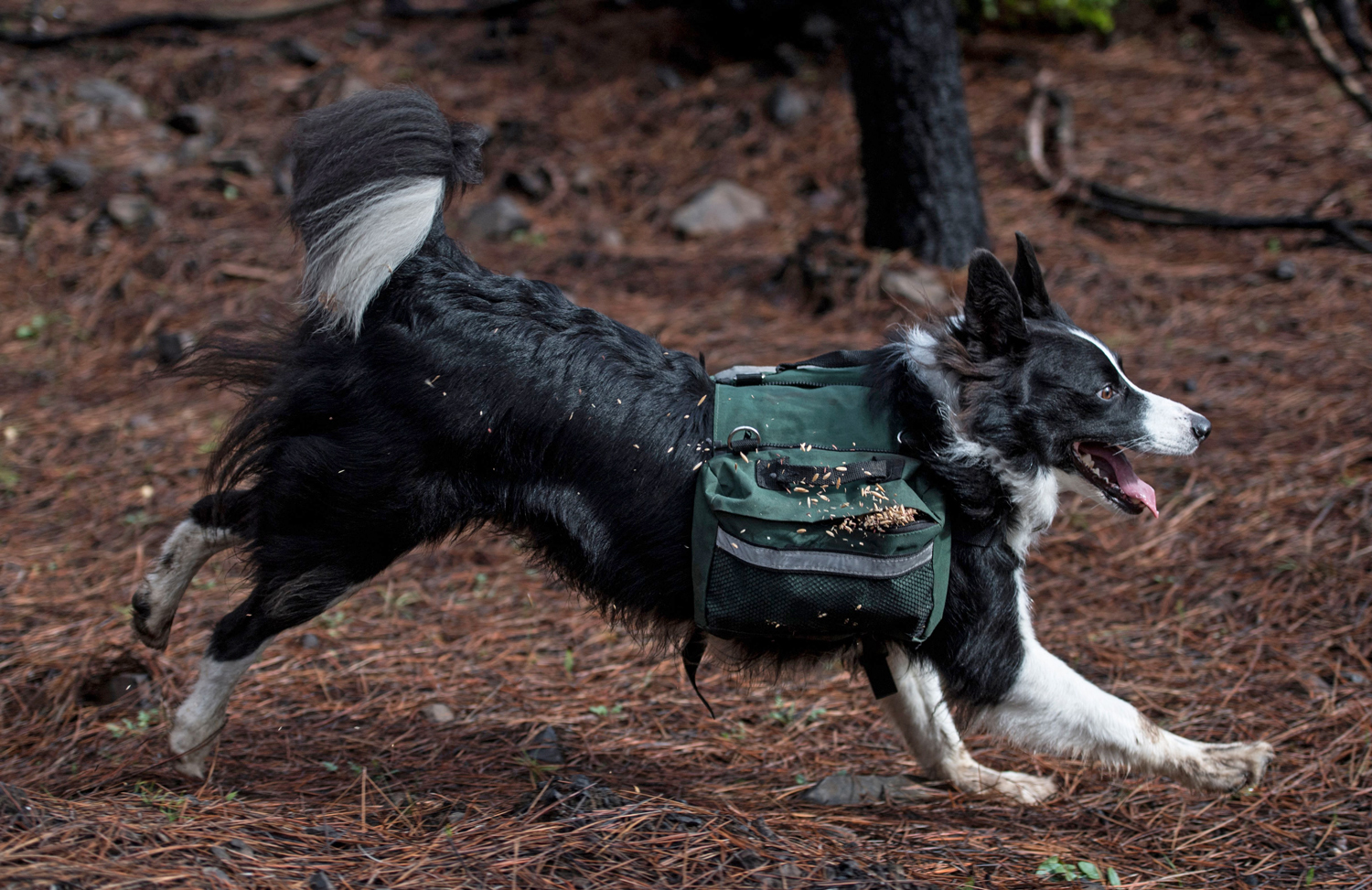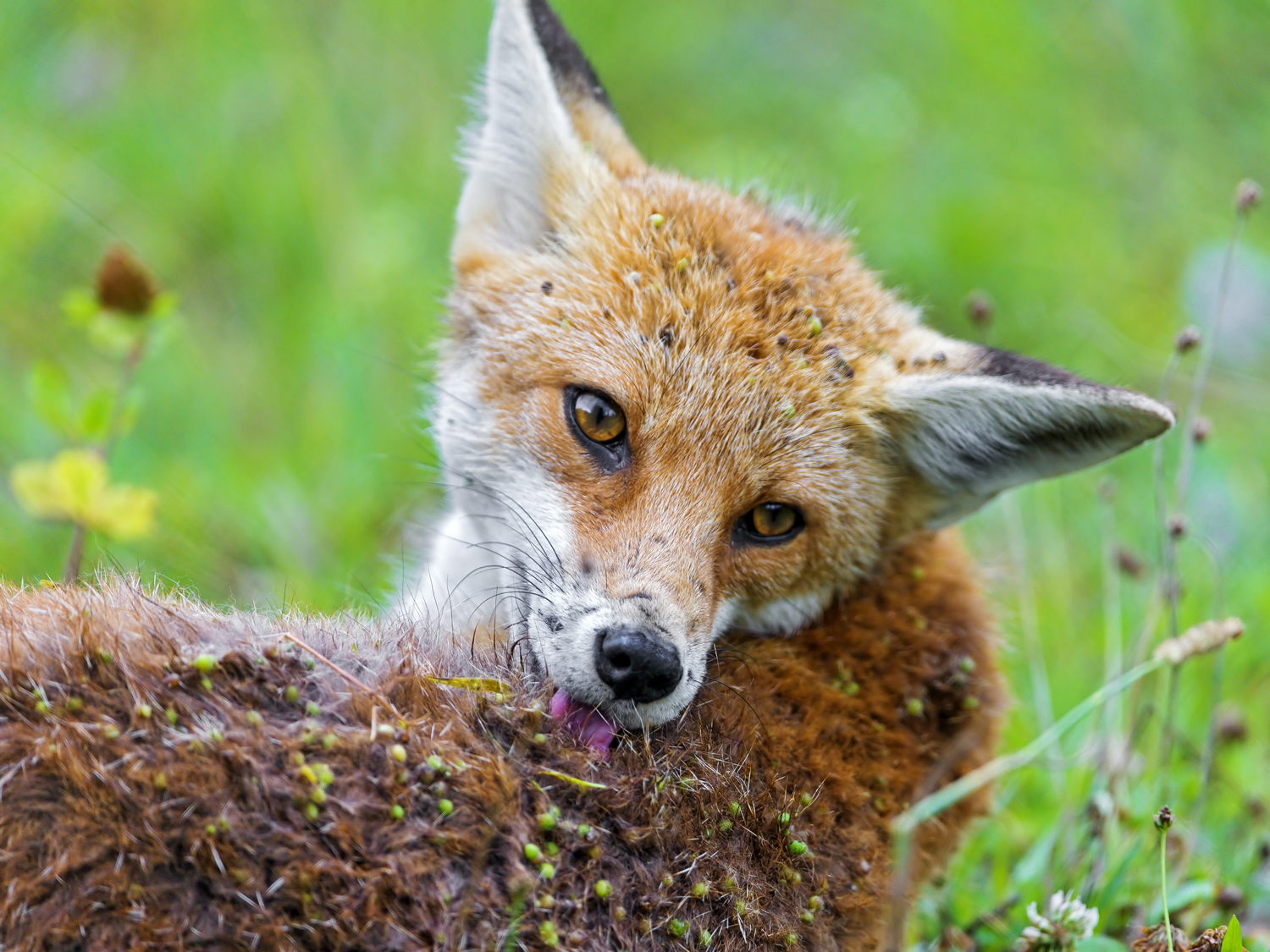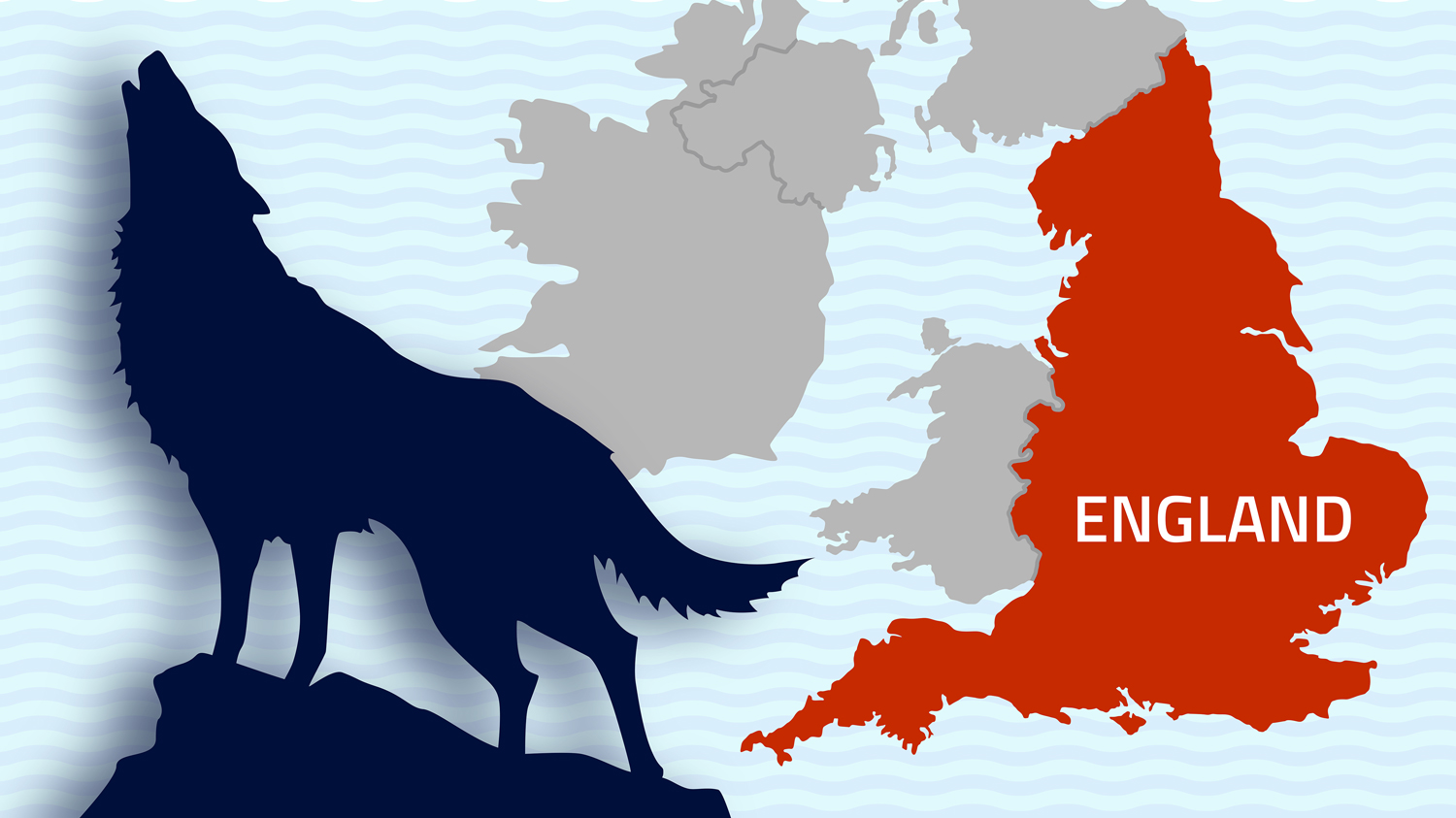A Dog’s Job
Dogs are doing important things for the ecosystem, just by running around with seed-filled backpacks.

© Martin Bernetti—AFP/Getty Images
In Chile, this dog and others helped spread seeds to regrow forests. There’s now a similar effort in the UK.
Wolves once roamed around England, unknowingly spreading wildflower and grass seeds that stuck to their fur and paws and fell off miles away. This seed-spreading was important for England’s biodiversity. But since wolves are long gone from that part of the world, their canine cousins—dogs—are pitching in.
In a town called Lewes, people are putting seed-filled backpacks on their dogs before heading to the Railway Land Nature Reserve. The backpacks are full of holes, so the dogs spread the seeds as they roam freely around the reserve with their humans close by. Project manager Dylan Walker says the dogs walk four times the distance humans do and often squeeze into places where humans don’t go.
Wolves once unknowingly did this work, often roaming 12 miles (20 kilometers) every night. But wolves became extinct in Britain in the 1700s.
“I signed up [for the project] because it sounded like such a good fit,” dog owner Cressida Murray told the Guardian. “I was asked to place a harness on my chocolate cocker spaniel called Bertie, and he ran around spreading seeds like wolves used to do many years ago.”
Walker got the idea for the project after hearing about a similar project that took place in Chile in 2019. After fires destroyed many acres of forest and drove many animals out, two women tied seed-filled satchels to their three dogs and let them run around the area. Even though the dogs had no idea what they were doing, their work helped turn some charred land green again.
In England, the dogs’ work is paying off, Walker says.
“We’ve already started to see seed germination in some areas, but most of the seeds that have been distributed by the dogs are perennials, which take a couple of years to establish and flower, so hopefully next year we’ll see some clearer results,” he told the Guardian.


